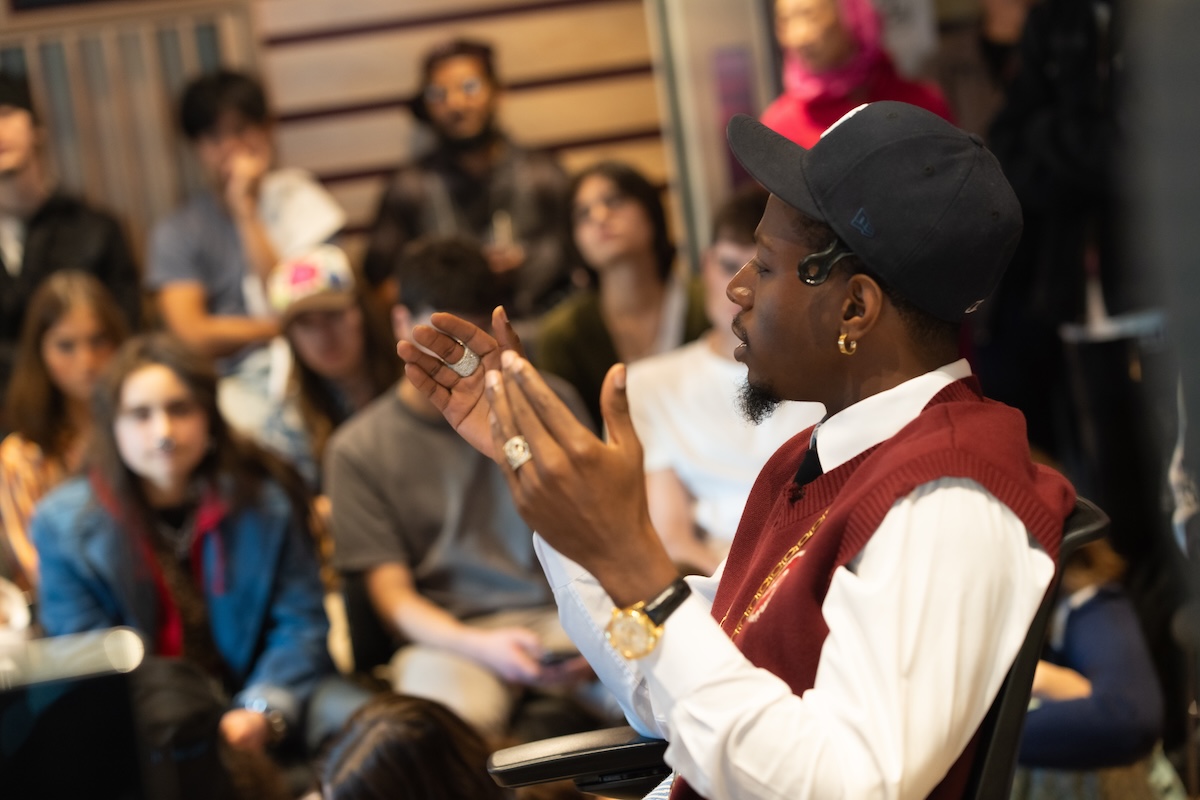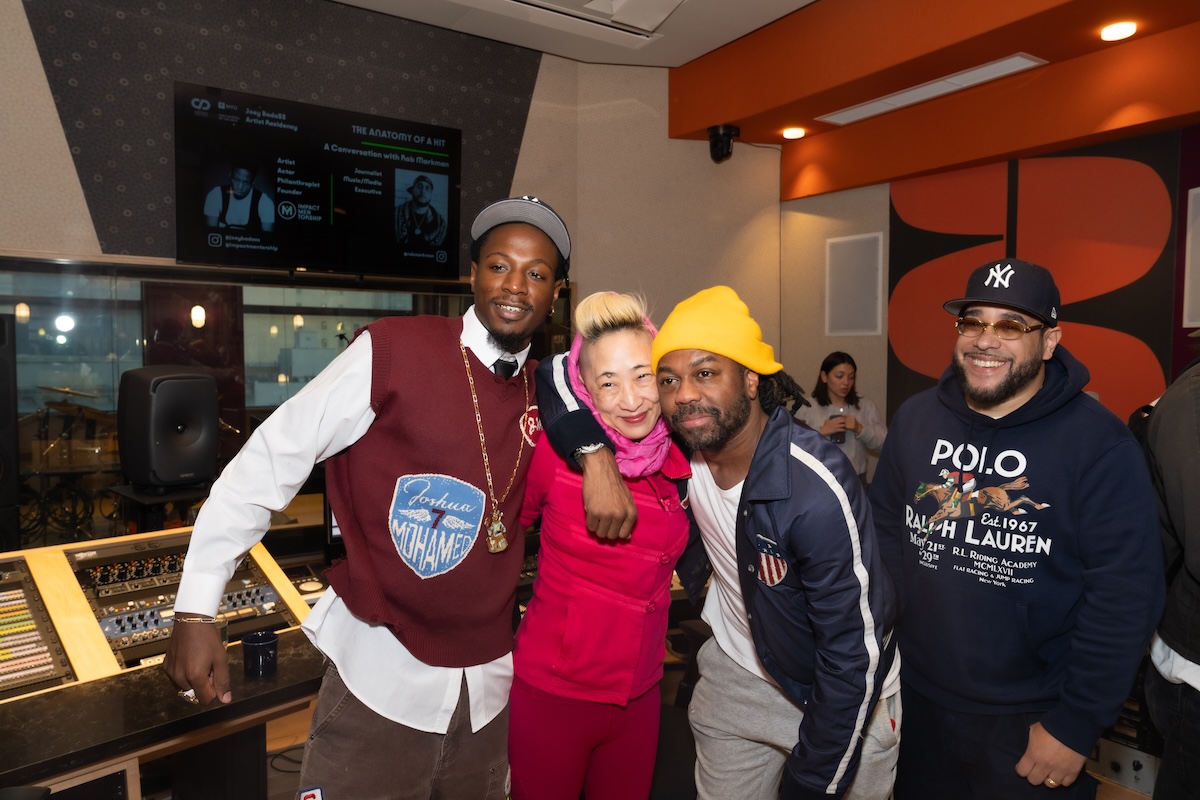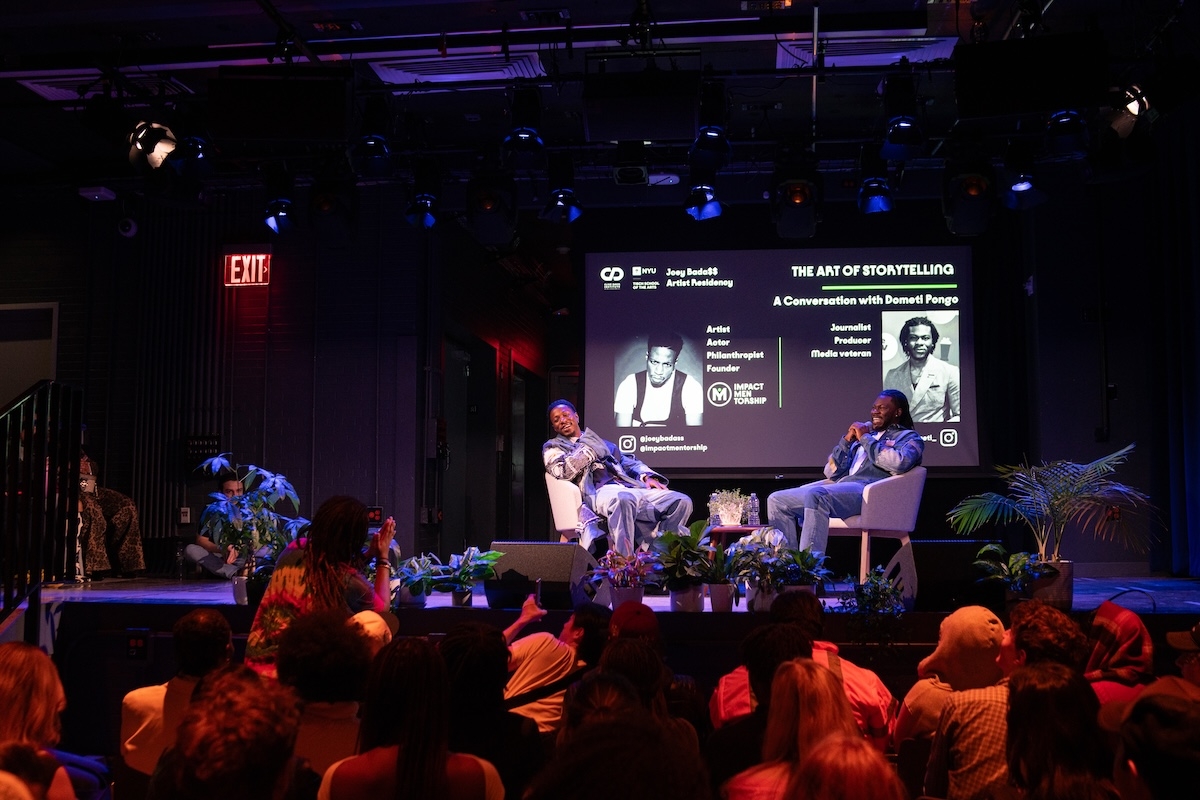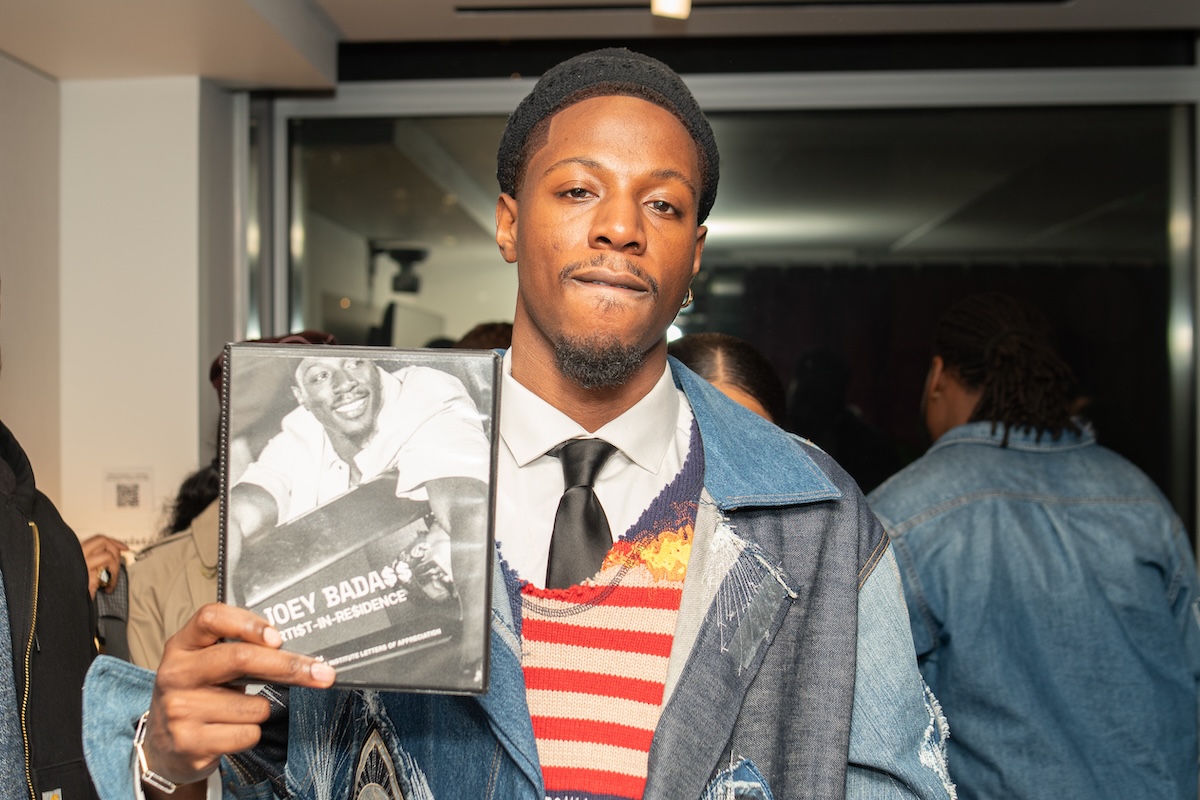At a glance, Joey Bada$$ is far too youthful to be a sharp-edged veteran--but he plays the part with aplomb. A breezy and precise wordsmith, the rapper and actor is at once a portrait of hip-hop’s hard-won progress and a vestige of its soulful past. On an October afternoon at the Clive Davis Institute of Recorded Music in Downtown Brooklyn, the Flatbush-born creator was kicking off his artist-in-residence by furnishing insights to a room full of students who could easily pass for his peers. The 29-year-old is already more than a decade into a commanding career anchored by three studio albums, two mixtapes, and a role as East Coast torchbearer in perhaps hip-hop’s most nebulous era. Amidst tales of artists imperiled by premature success, Bada$$ has cast himself as a steady hitmaker and a credible tastemaker well-schooled in rap’s golden age.
Last September, when Joey Bada$$ was revealed as the Clive Davis Institute’s next artist-in-residence, he joined a respected roster that has included Pharrell Williams, Swizz Beats, and Dev Hynes, among others. During the fall semester, he would lead Clive Davis Institute students and alumni in an assortment of talks, workshops, and informal discussions, surveying everything from the arts and activism to film, TV, and music. The move jived with the rapper’s ascension from indie rhymist to do-it-all artist, an evolution that has seen Bada$$ stepping into more serious acting roles and shepherding the next generation of young creatives. As Clive Davis Institute Chair Nick Sansano described it, Bada$$ has molded himself into a most contemporary breed of entertainer.
“Joey represents a new generation of creative professionals who are thoughtful and forward-thinking, diversified creative entrepreneurs,” Sansano said. “He is a multi-hyphenate success story that is extending his reach and influence beyond the world of music and entertainment. He has a wonderfully altruistic reach.”



